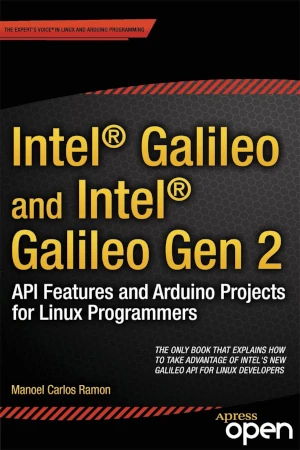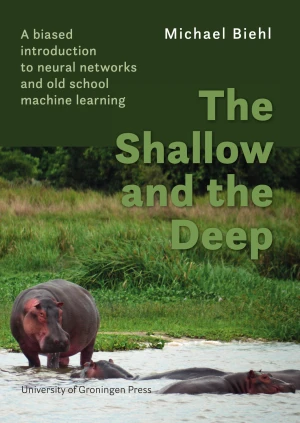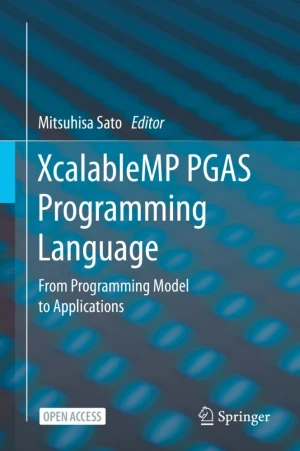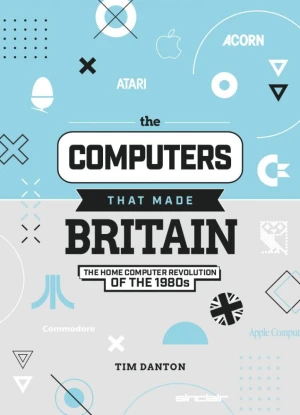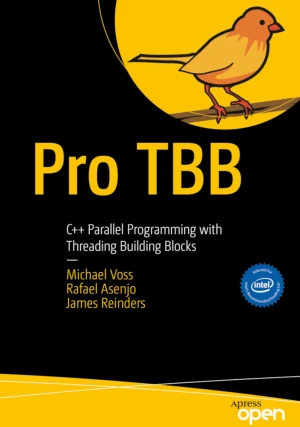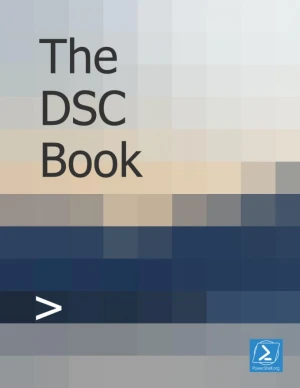Smooth CoffeeScript
Effective CoffeeScript and the Beauty of Functional Programming
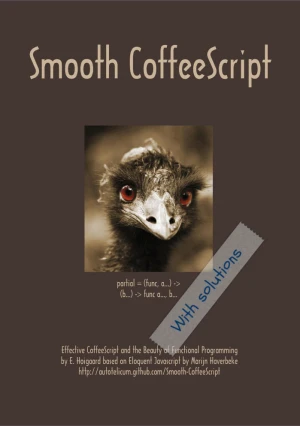
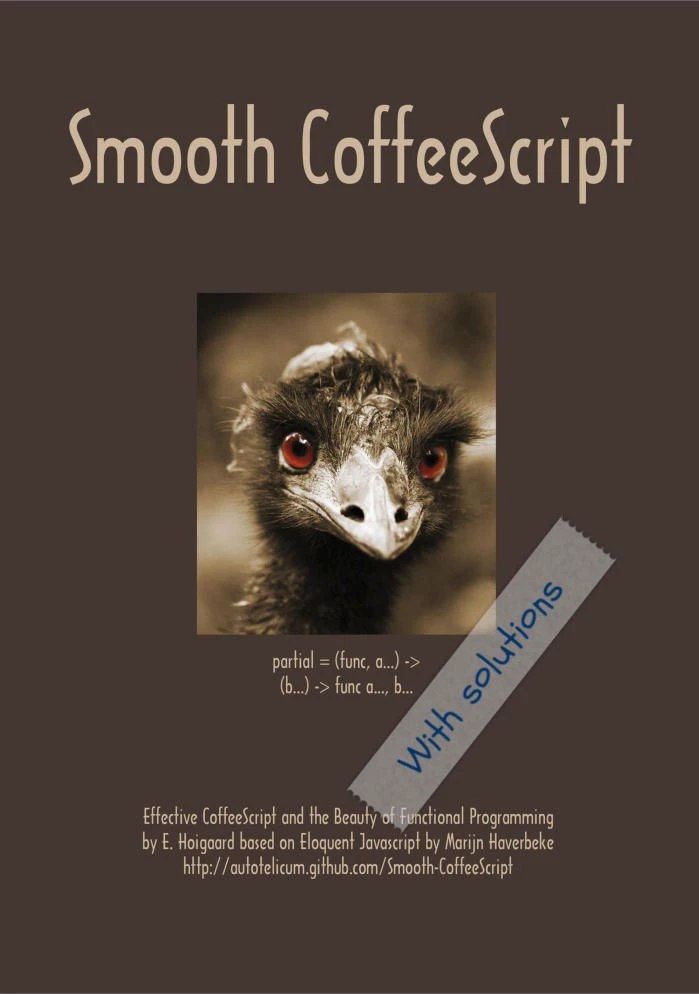
Book Details
| Author | E. Hoigaard |
| Published | 2011 |
| Edition | 1st |
| Paperback | 231 pages |
| Language | English |
| License | Creative Commons Attribution |
Book Description
CoffeeScript is a lucid evolution of JavaScript created by Jeremy Ashke-nas. Apart from the major change in explaining Coffee-Script instead of JavaScript, numerous other changes have been made andsections have been added, edited or removed. Everything that is expressed in this book is therefore solely the responsi-bility of the editor. In the sense of open source software, this book is afork.
The program examples in this book use a prelude file in addition to the CoffeeScript environment. It includes the Underscore functional library, the Coffeekup HTML markup, wsserver-side WebSockets andqc, a QuickCheck based testing library. These libraries extend CoffeeScript with useful abstractions and testing tools to keep focus on the task at hand instead of distracting boilerplate code.
While it is possible to express programs from a very small set of language primitives, it quickly becomes tedious and error prone to do so. The approach taken here is to include a broader set of functional building blocks as if they were a native part of the programming language. By thinking in terms of these higher level constructs more complex problems can be handled with less effort.
To ensure correctness testing is required. This is especially true when developing reusable algorithms in a dynamic and untyped language. By integrating QuickCheck style test cases as soon as functions are introduced,it is intended that writing tests and declaring assumptions become a seamless part of writing software.
This book is available under a Creative Commons Attribution license (CC BY), which means that you are free to copy, distribute, and modify it, as long as you give appropriate credit to the original author.
If you enjoyed the book and would like to support the author, you can purchase a printed copy (hardcover or paperback) from official retailers.
Download and Read Links
Share this Book
[localhost]# find . -name "*Similar_Books*"
Intel Galileo and Intel Galileo Gen 2
Intel Galileo and Intel Galileo Gen 2: API Features and Arduino Projects for Linux Programmers provides detailed information about Intel Galileo and Intel Galileo Gen 2 boards for all software developers interested in Arduino and the Linux platform. The book covers the new Arduino APIs and is an introduction for developers on natively using Linux.
The Shallow and the Deep
The Shallow and the Deep is a collection of lecture notes that offers an accessible introduction to neural networks and machine learning in general. However, it was clear from the beginning that these notes would not be able to cover this rapidly changing and growing field in its entirety. The focus lies on classical machine learning techniques, wi
XcalableMP PGAS Programming Language
XcalableMP is a directive-based parallel programming language based on Fortran and C, supporting a Partitioned Global Address Space (PGAS) model for distributed memory parallel systems. This open book presents XcalableMP language from its programming model and basic concept to the experience and performance of applications described in XcalableMP.�
The Computers That Made Britain
The home computer boom of the 1980s brought with it now iconic machines such as the ZX Spectrum, BBC Micro, and Commodore 64. Those machines would inspire a generation. Written by Tim Danton. The Computers That Made Britain (300 pages, hardback) tells the story of 19 of those computers - and what happened behind the scenes. With dozens of new inter
Pro TBB
This book is a modern guide for all C++ programmers to learn Threading Building Blocks (TBB). Written by TBB and parallel programming experts, this book reflects their collective decades of experience in developing and teaching parallel programming with TBB, offering their insights in an approachable manner. Throughout the book the authors present
The DSC Book
The DSC Book is a comprehensive and continually evolving guide to Microsoft's Desired State Configuration (DSC) technology. Authored by Don Jones and Steve Murawski, this mini book demystifies the powerful declarative platform designed for automating the configuration and management of infrastructure across on-premises and cloud environments. It co

